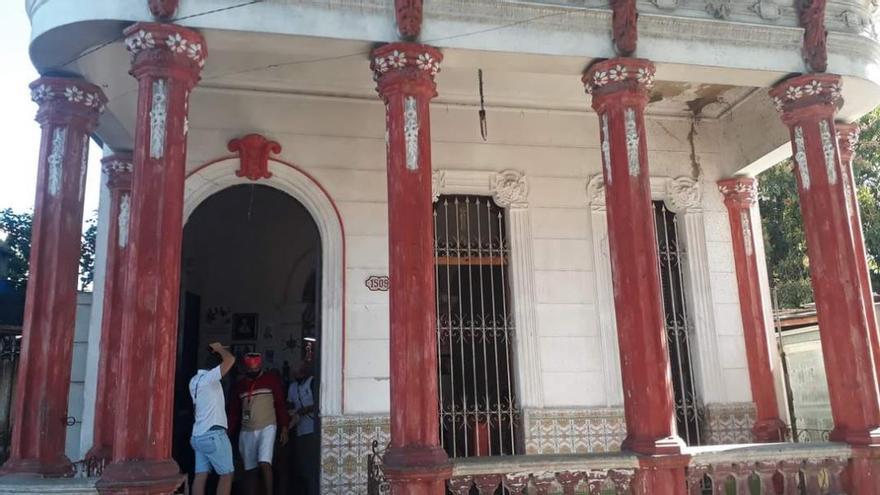
![]() 14ymedio, Havana | 2 January 2024 — Devoid of the critical tone against the Regime that characterized it in another era, the Letter of the Year of the independent Cuban Yorubas, published this Tuesday in Havana by the Miguel Febles Padrón Commission, focuses on international trade and on requesting “the prompt sanitation of the country.” After the announcement ceremony, presided over by the priest Gaspar Mesa, the organization insisted that its prediction – contrary to the one signed this Monday by the ruling Yoruba Cultural Association – is the legitimate Letter.
14ymedio, Havana | 2 January 2024 — Devoid of the critical tone against the Regime that characterized it in another era, the Letter of the Year of the independent Cuban Yorubas, published this Tuesday in Havana by the Miguel Febles Padrón Commission, focuses on international trade and on requesting “the prompt sanitation of the country.” After the announcement ceremony, presided over by the priest Gaspar Mesa, the organization insisted that its prediction – contrary to the one signed this Monday by the ruling Yoruba Cultural Association – is the legitimate Letter.
As in 2023, the text came out a day late with respect to officialdom’s Letter. Faced with the claims of the believers, the commission asked for patience and assured that the predictions would be revealed this Tuesday morning, during a press conference in the Yoruba temple of the municipality of Diez de Octubre.
Among the advice of social interest, the independent santeros [priests of the Santería religion] asked to “respect trade agreements” and “increase imports,” and announced an “increase in foreign financing,” although they avoided specifically alluding to the regime’s allies, such as Russia, which have marked the Island’s trade in recent months. Hence, the year, they explained, is consecrated to Elegba, an Afro-Cuban orisha or deity that protects “shopkeepers and merchants.”
However, they devoted several points of the Letter to commenting on the unhealthiness of the country and predicted “an increase in insect and rodent pests.” In addition, there will be “an increase in homicides,” robberies, divorces and disagreements among couples. The santeros predict multiple child abandonments and call for a higher birth rate.
The containment of disease, on which the commission is thorough, will depend on removing the piles of garbage
The containment of disease, on which the commission is thorough, will depend, they add, on “removing the piles of garbage: cerrestravascular, bacterial and parasitic, respiratory and infectious diseases, and diabetes with danger of mutilation of the extremities.” Finally, they recommended going to the “godparents” in search of “specific guidelines,” which the brief message cannot offer.
This Monday, the Yoruba Cultural Association – to which a militant complicity with the regime is attributed – also published its Letter. Focused on the increase in “abuse of women,” the consumption of alcohol and drugs, and crime, the text was more incisive with the situation of the Island than that of the independents.
The Letter of the Year, a tradition that orthodox believers resort to as much as the occasional ones, faces once again the schism in the leadership of Cuban Santería. The division between officials and independents results in the issuance of two texts, with different series of advice, prophecies and ruling divinities.
Inside Santería, the divided loyalties of their babalawos or priests and the emigration of thousands of religious Cubans – who aspire to take their practices with them, adapting them to the country of emigration – causes, in practice, a serious confusion among practitioners, who prefer to go to their personal “godfathers.”*
*Translator’s note: In Santería, the “godfather” (or “godmother”) is the one who initiates and guides the new devotee.
Translated by Regina Anavy
____________
COLLABORATE WITH OUR WORK: The 14ymedio team is committed to practicing serious journalism that reflects Cuba’s reality in all its depth. Thank you for joining us on this long journey. We invite you to continue supporting us by becoming a member of 14ymedio now. Together we can continue transforming journalism in Cuba.
